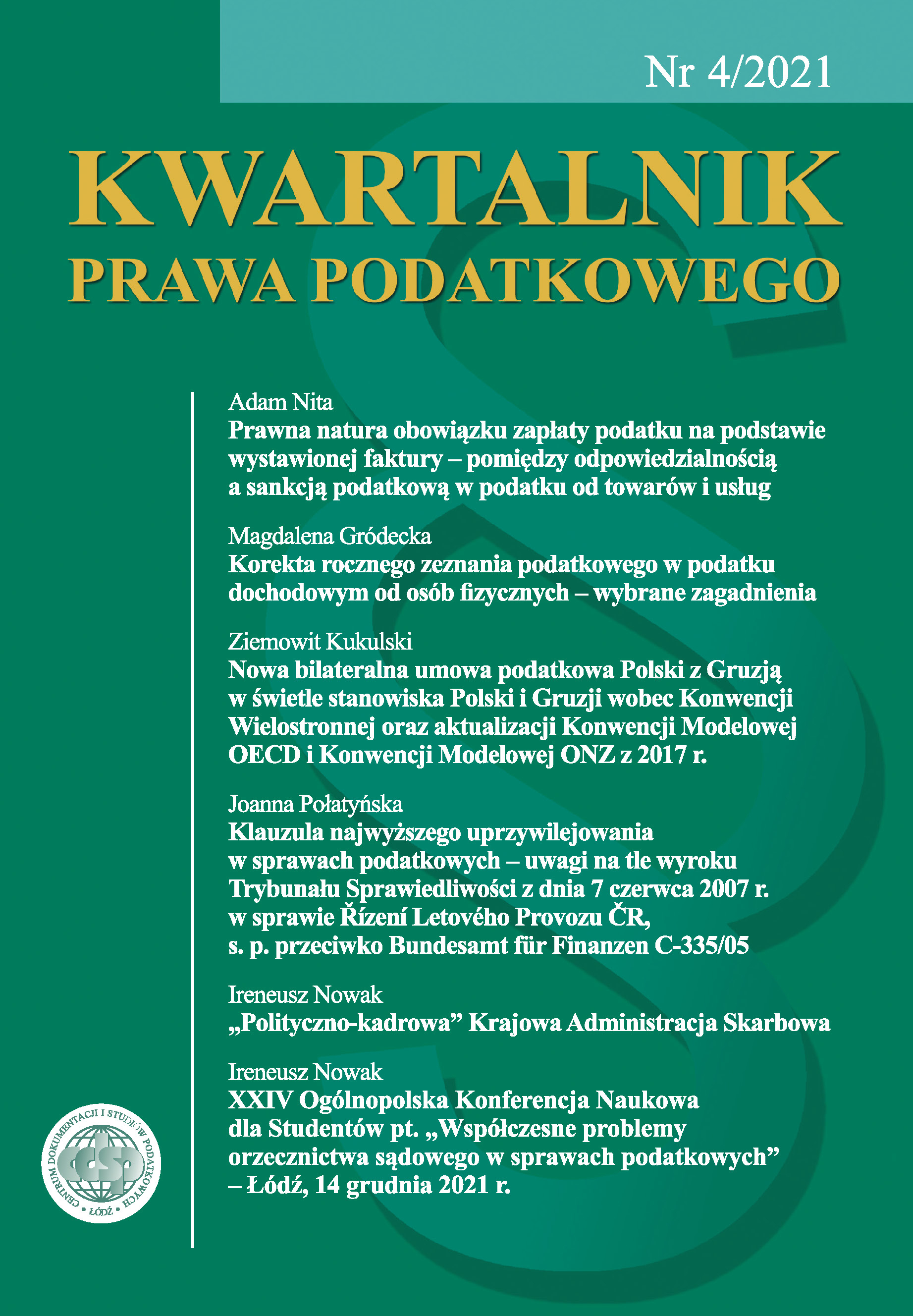Klauzula najwyższego uprzywilejowania w sprawach podatkowych – uwagi na tle wyroku Trybunału Sprawiedliwości z dnia 7 czerwca 2007 r. w sprawie Řízení Letového Provozu ČR, s. p. przeciwko Bundesamt für Finanzen C-335/05
Most-favoured-nation clause in the tax cases – some observations on the ECJ’s judgment in case no. C-335/05
Author(s): Joanna PołatyńskaSubject(s): Economy, Fiscal Politics / Budgeting
Published by: Wydawnictwo Uniwersytetu Łódzkiego
Keywords: most-favoured-nation clause; MFN;General Agreement on Trade in Services; GATS; value added tax;VAT; Thirteenth Council Directive 86/560/EEC; reciprocity principle; tax return
Summary/Abstract: This paper tackles some issues concerning the scope of application of the most-favoured-nation clause (MFN) in the tax cases. The main issue of the analysis is the ECJ’s judgment in case no. C-355/05 concerning the application by the EU Member States the condition of reciprocity on one hand, and the MFN as enshrined in the Article II.1 of the GATS. Starting with the practice of the MFN under international law it is shown that the main function of the MFN is an introduction of equal treatment of entities irrespectively of their nationality and, consequently, the removal of barriers in international trade. The MFN are particularly important in the WTO system. For these reasons the judgment in question interesting because firstly, it requires the interpretation of the EU law in accordance with international treaties to which the EU is a party and at the same time, it seemingly authorises the Member States to limit the scope of MFN of the Article II.1. of the GATS.
Journal: Kwartalnik Prawa Podatkowego
- Issue Year: 2021
- Issue No: 4
- Page Range: 57-68
- Page Count: 12
- Language: Polish

